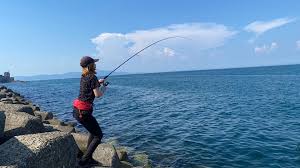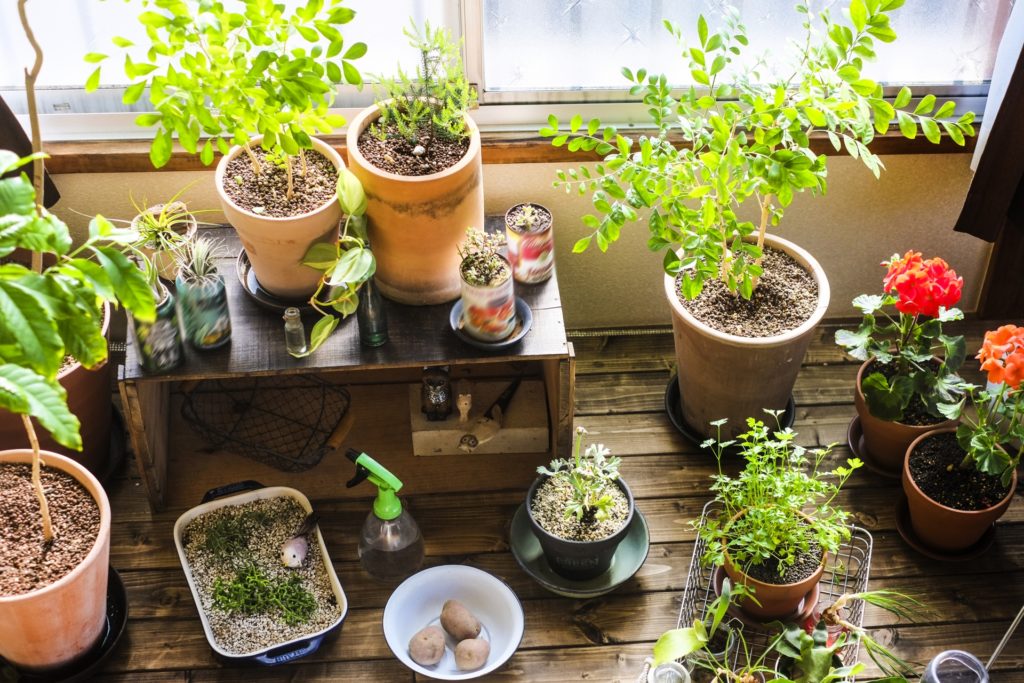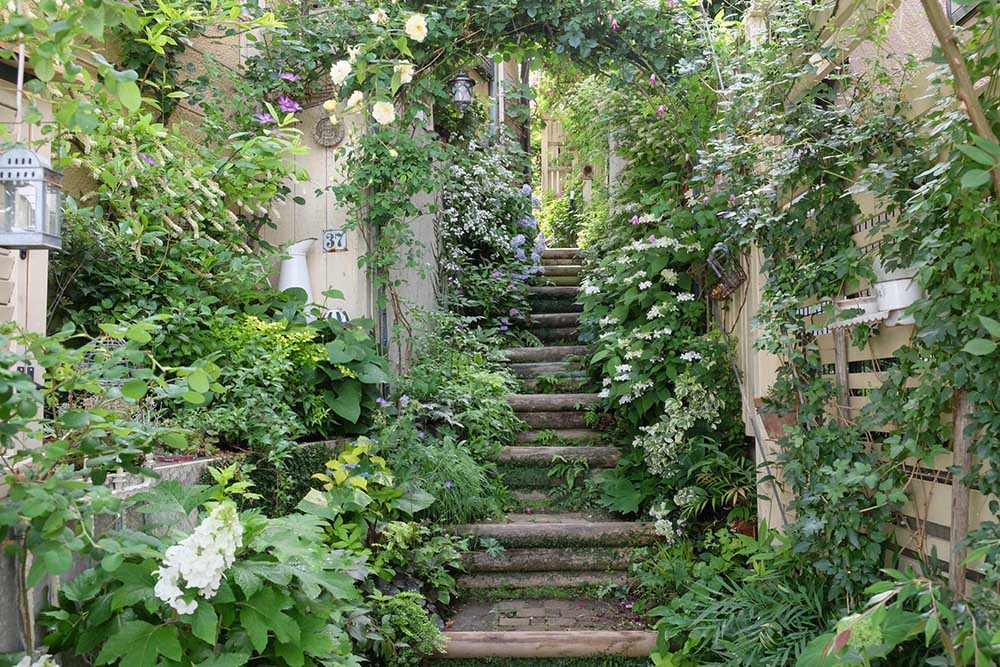
Gardening is a wonderful hobby that enriches your soul and adds color to your daily life.
However, many beginners are confused about where to start, what to plant, and how to grow their plants.
In this article, we will introduce a wide range of information for beginners, from basic knowledge on how to start gardening, to plants recommended for beginners, and tips and tricks for enjoying gardening.
We provide useful information not only for those who are thinking of starting gardening, but also for those who have already started but want to enjoy it even more.
Go ahead and create your own little green paradise.
目次
- 1 Basic knowledge you need to know before starting gardening
- 2 5 gardening plants recommended for beginners
- 3 How to enjoy gardening and tips
- 4 Common problems and solutions encountered by beginner gardeners
- 5 Ideas to make gardening more fun
- 6 A must-see for gardening beginners! Summary of recommended plants and starting guide
Basic knowledge you need to know before starting gardening
Before taking your first step into gardening, it’s important to have some basic knowledge.
This hobby offers more depth and satisfaction than simply putting plants in the ground.
Let’s start with the basics of gardening.
gardening basics
Welcome to the world of gardening! First, let’s understand what gardening is and why so many people are passionate about this activity.
Gardening is the art and science of growing, maintaining, and enjoying the beauty of plants. This requires a wide range of knowledge, including plant types, growing conditions, and seasonal care.
But don’t worry. You can improve your gardening skills by learning the basics little by little and gaining experience.
Necessary tools and how to use them
When starting gardening, it is important to have the basic tools.
The minimum required items are a shovel, fork, gloves, and watering can.
These tools are essential for basic gardening tasks such as planting, cultivating the soil, removing weeds, and watering plants.
From how to choose tools to how to use them correctly, here are some points that even beginners can easily learn.
Key points for soil preparation
Good soil is essential for healthy plant growth.
Soil preparation is one of the most important factors in successful gardening. Good soil is well-drained, rich in nutrients, and moderately moist.
You can improve the quality of your soil by understanding your garden’s soil type and adding compost or mulch as needed.
Start with the basics of soil preparation, which even beginners can easily practice, and aim for a prosperous garden.
Armed with these basic knowledge, your gardening journey will be more enjoyable and successful.
By understanding these basics before you begin, even beginners will be able to tackle gardening with confidence.
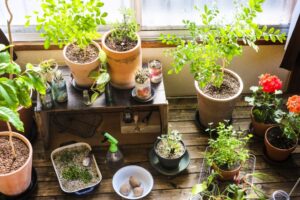
5 gardening plants recommended for beginners
For beginner gardeners, the choice of plants is very important.
To make your first gardening experience a success, it is important to choose plants that are easy to grow and beautiful.
Here we will introduce five vegetables and flowers that are especially easy to grow and recommended for beginners.
These plants are easy to get started and are perfect for learning the basics of gardening.
Easy-to-grow vegetables and flowers
- Tomatoes – Prefers a sunny, well-drained location. There are many varieties and they grow quickly, so you can enjoy the joy of harvesting quickly.
- Eggplants – Eggplants like warm weather and are one of the easiest vegetables to grow for beginners. Regular watering and fertilizer will lead to a bountiful harvest.
- Marigolds – Known to repel insects, marigolds not only add color to your garden, but can also be planted with vegetables to deter pests.
- Sunflowers – Sunflowers are suitable for any soil type and prefer direct sunlight, making them easy to grow even for beginners. There is also the joy of growing them from seeds.
- Lavender – Lavender prefers a dry environment with good fragrance and fewer insects. Well-drained soil and moderate watering are important.
Recommended plants for each season
- Spring : Petunias, lettuce, snap peas – Spring is the growing season for many plants. Colorful petunias, easy-to-grow lettuce and snap peas are recommended for this season.
- Summer : Geraniums, Cucumbers, and Zucchini – Geraniums that can tolerate the intense summer sun, as well as cucumbers and zucchini that love moisture, are perfect for summer.
- Autumn : Pansies, broccoli, and turnips – Cold-hardy pansies, as well as broccoli and turnips that are planted in the fall and ready for harvest in the spring, are suitable for the cooler autumn months.
- Winter : Cyclamen, Komatsuna, and Spinach – Cyclamen, which can be enjoyed even in winter, and komatsuna and spinach, which are hardy in the cold, are perfect for winter gardening.
These plants are suitable for beginners to get familiar with gardening and enjoy the growing process.
Start with plants that are easy to grow and gradually try different plants.
How to enjoy gardening and tips
Gardening is more than just planting plants.
It’s a kind of art and a dialogue with nature.
The path to success begins with learning how to properly interact with plants and practicing regular care.
This section focuses on how to plant and grow a beautiful garden, the importance of regular maintenance, and environmental considerations.
How to plant and grow plants
When planting plants, choose a location that is appropriate for the type of plant.
Plants that like sunlight should be planted in a sunny location, and plants that prefer well-drained soil should be planted in a location that meets these conditions.
The time of planting is also important. Remember that some plants should be planted in the spring and others in the fall.
Watering varies depending on the plant, but it is common to water generously when the soil is dry.
Points for regular maintenance
The key to gardening is regular maintenance. Weeding, pruning, and fertilizing are essential for healthy plant growth.
Check your plants regularly to avoid overlooking any early signs of pests or disease.
These maintenance tasks are important to maintaining a healthy garden.
Environmental considerations to keep in mind when gardening
Environmental considerations are very important in modern gardening.
Protect the natural environment by minimizing the use of chemical fertilizers and pesticides and choosing organic products instead.
You can also create a wildlife-friendly garden by choosing plants that support local ecosystems.
It’s also important to incorporate sustainable gardening practices, such as collecting rainwater to water your plants.
Keeping these tips in mind will make gardening a more enjoyable and environmentally friendly hobby.
By interacting with plants, you can add color to your daily life.
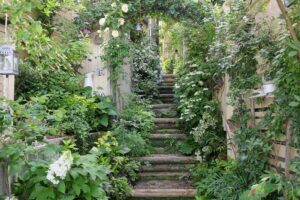
Common problems and solutions encountered by beginner gardeners
When you first start gardening, you may be faced with a variety of problems regarding growing plants and maintaining your garden.
In particular, pests and plant diseases can be a major hindrance to maintaining a beautiful garden.
Here, we will introduce effective countermeasures to these problems that beginners often encounter.
pest control
- Prevention is key : The most effective way to prevent pest infestations is to take precautions. Check your plants regularly to see if there are any pests on the undersides of the leaves or stems.
- Use natural enemies : You can reduce pest populations naturally by inviting beneficial insects to your garden that eat pests, such as ladybugs and praying mantises.
- Use pest-repellent plants : You can reduce pest infestations by planting plants in your garden that repel pests, such as lavender and marigolds.
Plant diseases and their prevention
- Proper watering : Overwatering can cause plant diseases. Understand the amount of water your plants need, such as watering when the soil surface becomes dry.
- Ventilation and sunlight : Ensuring your plants receive enough sunlight and improving ventilation in your garden can reduce the risk of disease.
- Early detection and response : It is important to detect plant abnormalities early and take appropriate measures. Isolate or remove infected plants as soon as possible to prevent the spread of infection.
By practicing these basic measures, even beginner gardeners can effectively fight pests and plant diseases and maintain a healthy garden.
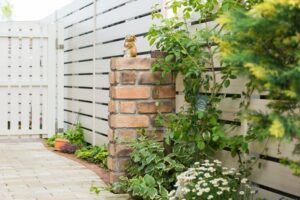
Ideas to make gardening more fun
Gardening not only offers the joy of growing plants, but also the opportunity to express your creativity.
Here we will introduce two ideas to make gardening even more enjoyable: DIY garden accessories and recipes that make use of the harvest from your home garden.
DIY garden accessories
One great way to personalize your garden is to make your own accessories.
Below are some examples of easy and fun DIY projects.
- Painted Stones : Paint flowers and insects on stones with colorful paints and scatter them around the garden. This project is also great to have fun with kids.
- Make planters from recycled items : Create unique planters by repurposing unused items around your home, such as old boots, cans, and wooden boxes. These can also be used as accents.
- Garden markers : Make your garden easier to navigate and add a decorative element by hand-writing plant names on pieces of pottery or wood and placing them in front of each plant.
Recipes to enjoy harvesting from your home garden
Cooking with vegetables and herbs from your home garden brings a special sense of satisfaction. Below are some examples of recipes that are easy to make and delicious.
- Fresh Herb Pesto Sauce : Made with lots of homemade herbs like basil and parsley, this pesto sauce is perfect for pasta and sandwiches.
- Garden Salad : Make a fresh salad using the tomatoes, cucumbers, and lettuce you’ve harvested. Homemade dressing enhances the taste.
- Roasted vegetables : A variety of vegetables such as zucchini, eggplant, and peppers can be tossed with olive oil and herbs and baked in the oven for a great dish.
By incorporating these ideas, you can enjoy the charm of gardening more deeply and expand your hobby.
Create your own original garden and enjoy the fruits of your labor.
A must-see for gardening beginners! Summary of recommended plants and starting guide
Gardening is a very fulfilling hobby that allows you to express your creativity while interacting with nature.
In this article, we have provided a wide range of information, from the basic knowledge that beginner gardeners need to get off to a smooth start, to recommended plants that are easy to grow, and tips and ideas for enjoying gardening.
In summary, keep the following points in mind.
- Learn the basics : Before you start gardening, understand how to use the tools you need and the key points of preparing the soil.
- Recommended plants for beginners : By starting with vegetables and flowers that are easy to grow, and recommended plants for each season, you can gain experience in gardening success.
- How to enjoy gardening and tips : Enjoy the depth of gardening while learning how to plant, maintain, and consider the environment.
- How to deal with problems : Problems such as pests and plant diseases can be overcome by taking appropriate measures.
- Ideas to make gardening even more fun : You can make gardening even more fun by making DIY garden accessories and cooking with the vegetables you harvest.
Gardening is an activity that even beginners can enjoy. We hope this guide helps you get your gardening life off to a great start.
Enjoy the journey to create your own beautiful garden.

